Why Staying Active Matters in Retirement
Retirement is the time to relax and enjoy life, but staying active is crucial for a long, healthy, and fulfilling retirement. An active lifestyle keeps you physically fit, mentally sharp, and socially connected, allowing you to make the most of your golden years.
The Benefits of a Healthy Lifestyle
Being healthy in retirement isn’t just about avoiding illness; it’s about thriving. Regular exercise and a balanced diet can boost your energy, enhance your mood, and even improve your relationships.
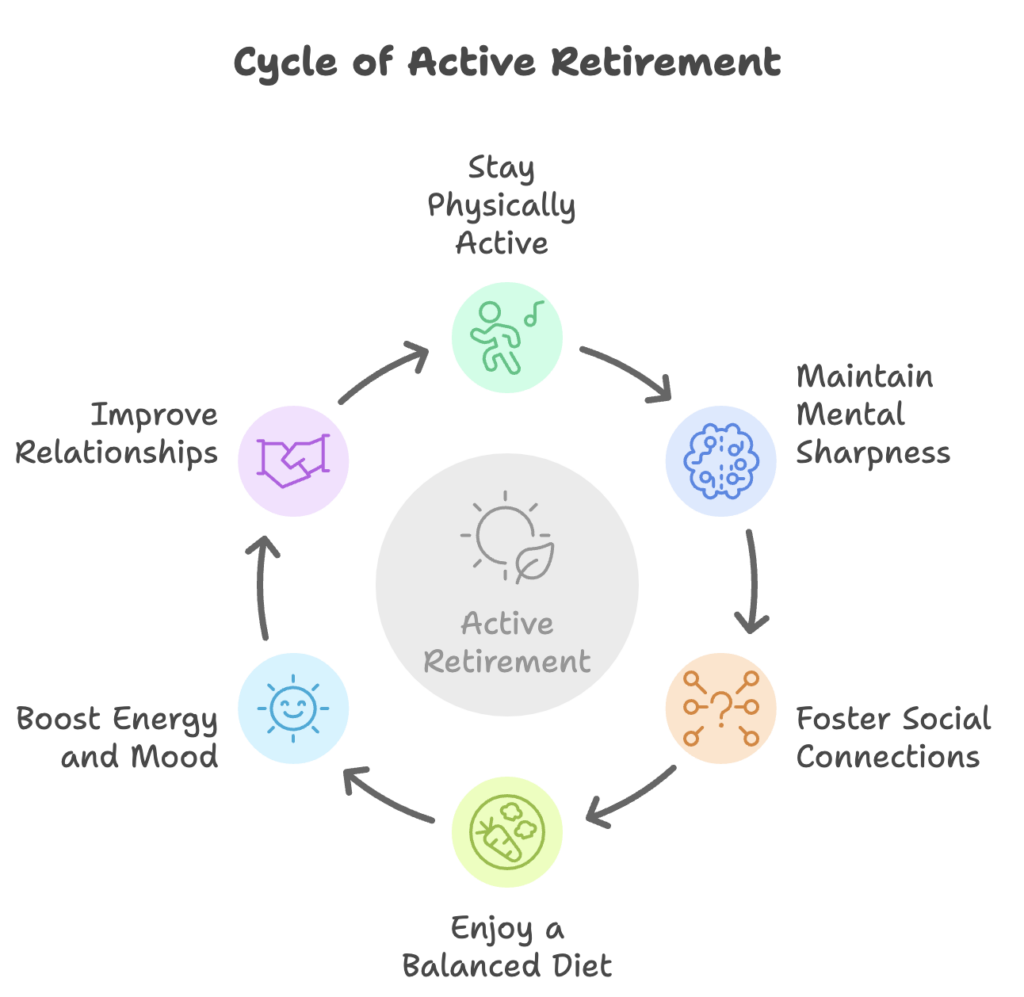
Building an Active Retirement Plan
Assessing Your Current Health
Start by understanding where you stand. Schedule a check-up to evaluate your physical and mental health. Knowing your baseline will help you set realistic goals.
Setting Realistic Health Goals
Avoid setting goals that feel overwhelming. Instead, aim for small, achievable targets like walking 10,000 steps a day or preparing a healthy meal once a week.
Mistake #1: Neglecting Physical Activity
The Risks of a Sedentary Lifestyle
A sedentary lifestyle can lead to weight gain, reduced mobility, and chronic health issues like heart disease and diabetes. Sitting too much is like letting your car idle; it eventually wears out without getting you anywhere.
Easy Ways to Stay Physically Active
Simple activities like gardening, swimming, or taking daily walks can keep you moving. Don’t underestimate the power of small changes—they add up over time!
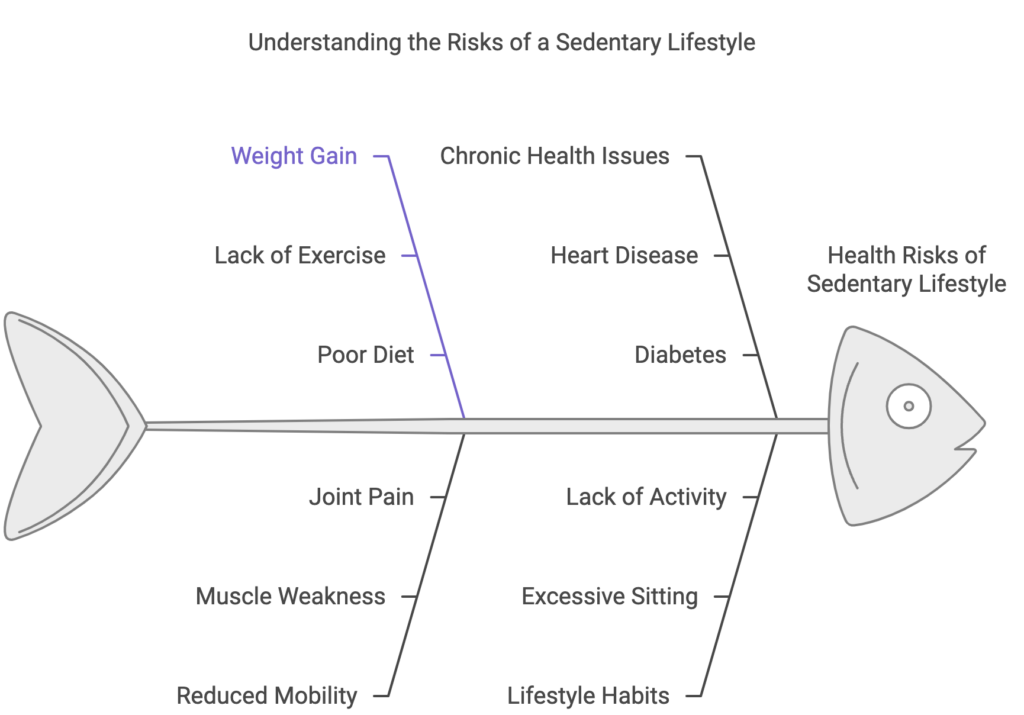
Prioritizing Physical Fitness
The Role of Cardiovascular Exercise
Cardio exercises like brisk walking, cycling, or swimming improve heart health and boost stamina. Aim for 150 minutes a week for noticeable benefits.
Strength Training for Aging Adults
Building muscle isn’t just for bodybuilders. Strength training prevents muscle loss, improves bone density, and enhances balance—reducing the risk of falls.
Flexibility and Balance Exercises
Incorporate yoga or tai chi into your routine to improve flexibility and balance. These activities are also great for reducing stress and improving posture.
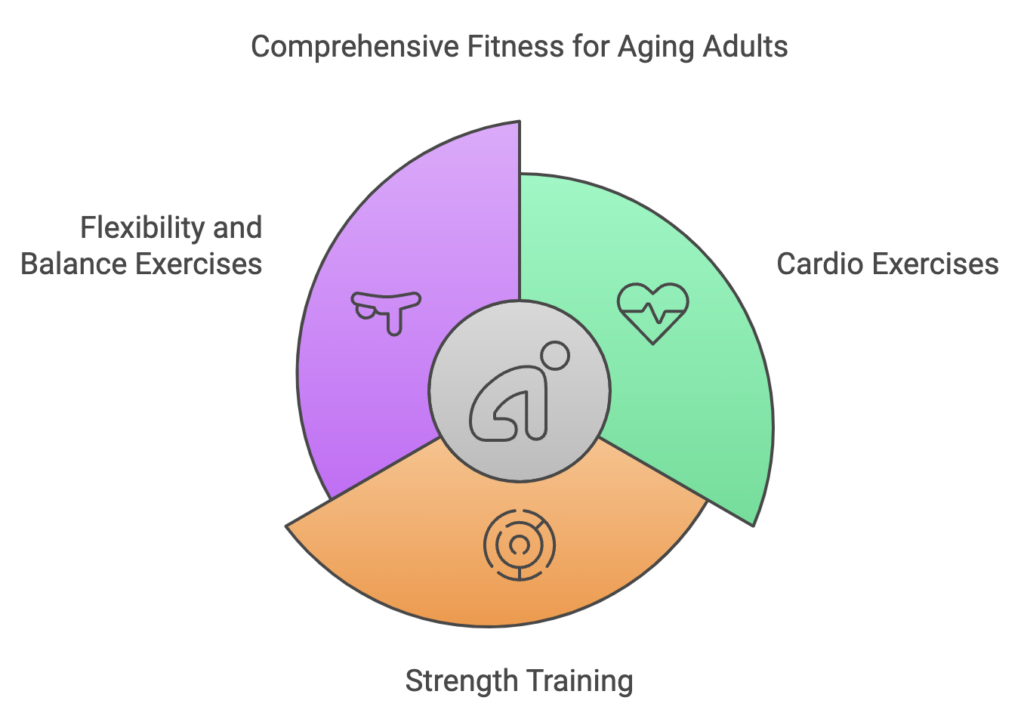
Eating for Health and Longevity
Nutritional Needs in Retirement
Your dietary needs change as you age. Focus on nutrient-dense foods that support energy, immunity, and overall health. A good rule of thumb is 1 gram of protein per kilogram of body weight and 5 grams of creatine not just for physical benefit but also for cognitive function.
Foods to Prioritize
Load up on fresh fruits, vegetables, whole grains, lean proteins, and healthy fats. Think of your plate as a colorful palette that fuels your body.
Avoiding Common Dietary Pitfalls
Beware of empty calories from sugary snacks or processed foods. Instead, choose whole foods that nourish your body and mind.
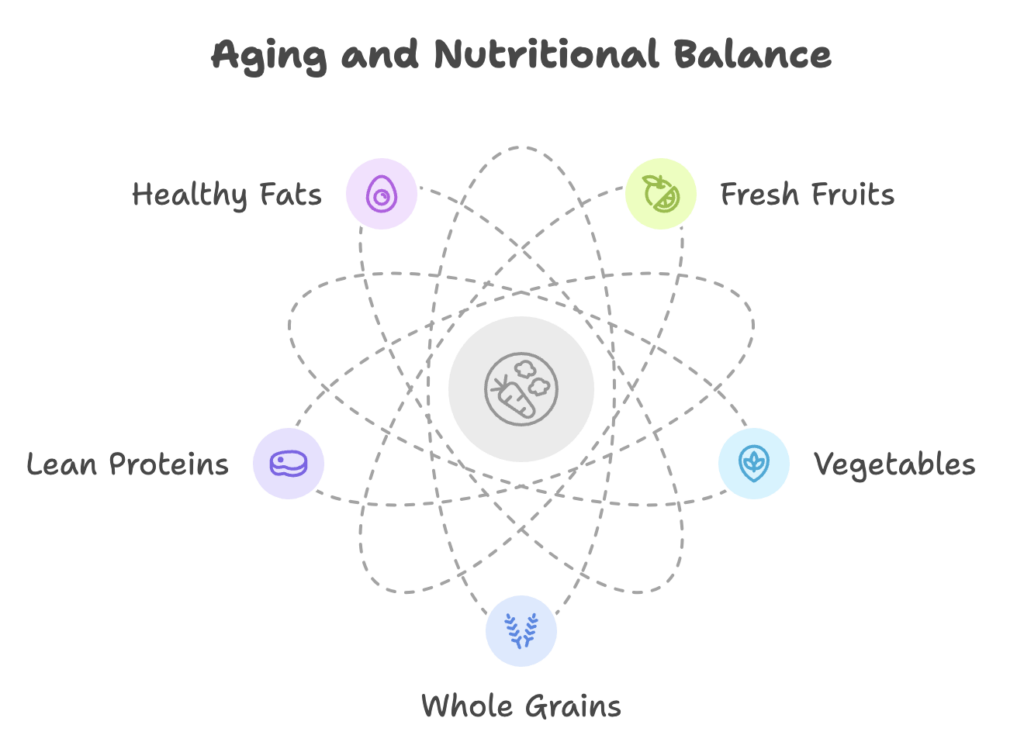
Mental Health and Wellness
Managing Stress Effectively
Stress doesn’t retire when you do! Practice mindfulness, meditation, or even deep breathing exercises to keep stress at bay.
Staying Socially Connected
Loneliness can be a silent health hazard. Stay connected by joining clubs, volunteering, or simply calling friends and family regularly.
Keeping the Mind Sharp
Engage in puzzles, learn a new skill, or take up reading to keep your mind active and engaged.
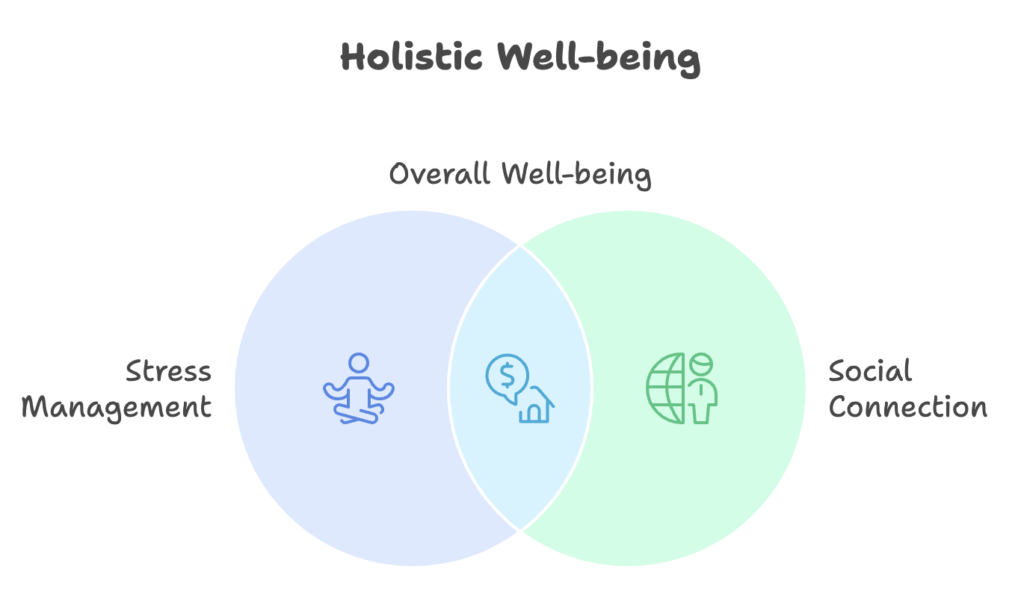
Regular Health Check-Ups
Importance of Preventative Care
Regular check-ups help catch potential health issues early. Prevention is always better (and cheaper) than cure.
Key Screenings for Retirees
Stay on top of screenings for blood pressure, cholesterol, diabetes, and cancer. These checks can make a world of difference.
Creating a Routine
The Power of Daily Habits
A consistent routine helps you stay disciplined. Whether it’s morning yoga or an evening walk, daily habits create a foundation for active living.
Balancing Rest and Activity
While staying active is essential, rest is equally important. Listen to your body and ensure you get adequate sleep.
Hobbies and Interests for Active Living
Exploring New Activities
Retirement is the perfect time to try something new—painting, hiking, or learning a musical instrument. It keeps life exciting and meaningful.
Staying Passionate About Old Hobbies
Don’t abandon the hobbies you love. Whether it’s fishing, knitting, or woodworking, these activities can bring immense joy and relaxation.
Traveling for Health and Adventure
Planning Active Vacations
Combine fitness and fun by planning trips that involve walking tours, hiking, or even dancing! Adventure keeps you young at heart.
Health Tips While Traveling
Stay hydrated, pack healthy snacks, and incorporate light exercises into your travel routine to keep your health on track.
Conclusion
Retirement is your time to shine, but staying healthy takes effort. With the right approach to fitness, diet, mental health, and daily habits, you can enjoy an active and vibrant lifestyle. The key is to start today and stay consistent. After all, the best investment you can make is in yourself.
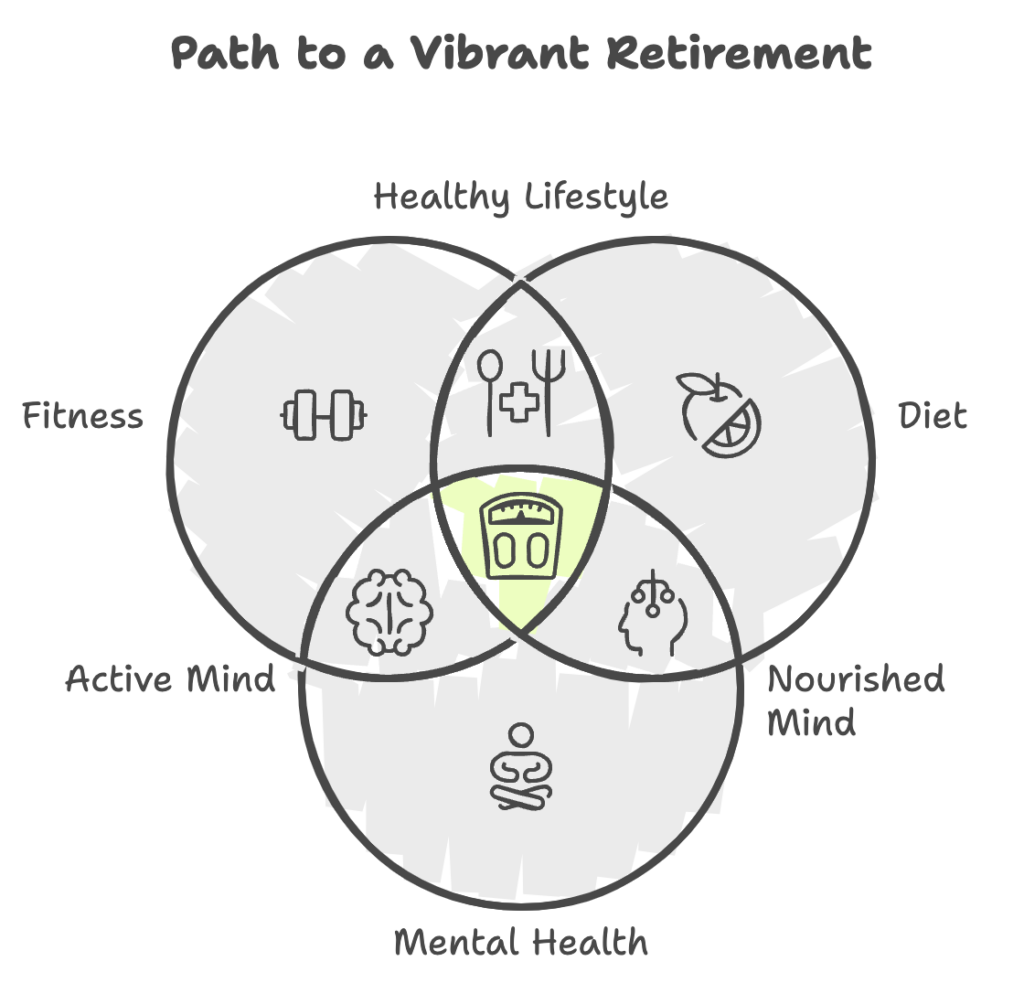
FAQs
How much exercise is ideal for retirees?
Aim for at least 150 minutes of moderate-intensity aerobic activity each week, along with strength training exercises twice a week.
What are the best foods to eat in retirement?
Focus on whole, nutrient-dense foods like fresh fruits, vegetables, whole grains, lean proteins, and healthy fats.
How can retirees stay mentally active?
Engage in puzzles, take classes, learn a new skill, or participate in social activities to keep your mind sharp.
Is strength training safe for seniors?
Yes, when done correctly. Start with light weights and proper form, and consider working with a trainer to avoid injury.
How can I maintain social connections in retirement?
Join local clubs, volunteer, participate in group activities, or use technology to stay connected with loved ones.
